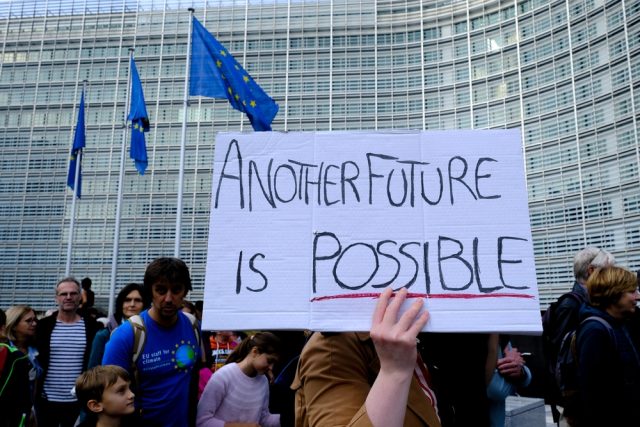
The conference on the future of Europe has raised a series of debates and discussions intended to allow everyone in the European Union to share their ideas and thus contribute to future changes in the international organization. In agreement with the Parliament, the Commission and the Council of the European Union, the Community bodies undertook to follow up on the recommendations sent to them by citizens.
As a result, a total of 49 proposals have been submitted by the end of the conference, most of them relating to everyday life. In particular, one of the issues that stood out most in these final proposals was climate change. They have also suggested profound changes in the decision-making processes in Brussels, such as the abolition of the veto in the Council of the European Union. In other words, giving more decision-making power to the EU institutions to the detriment of the nation states. This proposal was justified by Omri Preiss, director of Alliance 4Europe, stating that currently “with the veto, Europe simply cannot take action”.
As they stand, the proposals put forward represent a clear success for the current political leadership of the Union. The affinity of the proposals with the loss of sovereignty on the part of the member states to the benefit of the community institutions raises the question of what has really been the approach given to a citizens’ conference in which they are intended to legitimize or precede future decision-making. While on the one hand it has echoed the will of citizens on various issues of interest and concern to Europeans, on the other hand, it has focused on the solution to these same issues from the possibilities and competences of the European institutions, undervaluing the national competences of each member state and dismissing their participation in the debate.
Europe avoids debate on the role of the member states
In this sense, Member States such as Bulgaria, Croatia, Czech Republic, Denmark, Estonia, Finland, Latvia, Lithuania, Malta, Poland, Romania, Slovenia and Sweden have issued a statement in which they are skeptical about the modification of treaties, warning that the current management of the European Union bodies has influenced citizens’ requests to justify profound changes in the organization. It should be noted that the conclusions of the conference are not legally binding.
The European Union, which was born out of cooperation between sovereign states, has in this case chosen to turn a deaf ear to what its member states have to say, which are now equipped with legal tools and mechanisms to address many of the concerns raised by their own citizens. In this sense, the steps to which the voice given to the citizenry is directed seem to be strictly bounded and directed towards the inevitable approach of giving Brussels the power that now, without the consent and help of the Member States, it could not exercise.
Despite the fact that the final collection of proposals by European citizens is not linked to any of the Community entities, on September 14 last, the President of the European Commission, Ursula Von der Leyen, announced in the European Parliament the convening of a European Convention. In other words, the European Union is preparing to reform its treaties and, with it, to make far-reaching changes to the internal structure of the organization. The question then arises as to whether the proposals of the Conference on the Future of Europe will be interpreted with a seriousness that does not correspond to its organization, and whether the current leadership of the European Union is really thinking of the citizens or of its own interests.



 Subscribe
Subscribe